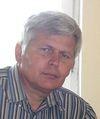PLOTNIKOVA V., FOMIN A. FORMATION OF PROFESSIONAL COMPETENCE IN THE SPHERE OF TOURISM BY MEANS OF PROJECT ACTIVITY. LIFELONG EDUCATION: The 21st Century.
2022. № 2 (38).
DOI: 10.15393/j5.art.2022.7626
FORMATION OF PROFESSIONAL COMPETENCE IN THE SPHERE OF TOURISM BY MEANS OF PROJECT ACTIVITY
 | | PLOTNIKOVA Victoria S.
PhD in Pedagogical Sciences, Associate Professor
Petrozavodsk State University
(Petrozavodsk, Russian Federation)
plotnikovaptz@mail.ru |
 | | FOMIN Alexander А.
PhD in Pedagogical Sciences, Associate Professor
Leningrad State University named after A. S. Pushkin
(Saint Petersburg, Russian Federation)
sgd@yandex.ru |
Keywords:
tourism education
professional competence
project activities in tourism |
Abstract: the economic efficiency of the tourism and hotel business depends on a set of factors including the professional competence of employees. Professional competence reflects the ability and willingness to use existing knowledge, skills in practical work, forming a model of an employee who is able to solve problems in the chosen field of activity and demonstrate the effectiveness of his work. It is implemented in a specific way of carrying out the productive activities of the enterprise and is formed in the process of studying at a university, the process of project activities including. The aim of the paper is to find the potential of project activities in the professional competence formation in the field of tourism and hospitality and give recommendations for its improvement.
As a result of the study, the structure of professional competence in the field of project activi-ties was determined, including knowledge, experience, values, emotional-volitional regulation and readiness for activity. The main professional skills related to the formation of professional compe-tence of Bachelors Degree in tourism and hospitality, necessary for the effective solution of com-plex problems in the chosen field of activity, were identified. They are associated with the devel-opment of systemic, critical, flexible, creative thinking, design thinking and emotional intelligence. As a result of a survey conducted on the basis of Petrozavodsk State University and Leningrad State University named after. A.S. Pushkin, it was revealed that graduates of the tourism department during their studies have the opportunity to gain knowledge and experience in the field of project activities, they form a readiness to develop and implement projects, implement a value-semantic approach and the ability to regulate emotional and volitional qualities.
To organize effective project activities in the educational process of the university, the authors highlighted recommendations aimed at using various forms of project activities that combine indi-vidual, pair, group and collective projects; the use of innovative educational formats, including in-teraction with the practices of the tourism and hotel business; purposeful work on a clear develop-ment of the stages of project work; the use of various forms of project presentation: power point presentations, videos, websites, scientific articles, with the preparation of technological and tech-nical documentation and demonstration of the project in the form of a master class. The proposed recommendations for working on projects are aimed at developing the professional competence of specialists in the field of tourism and hospitality and will be useful in the practical educational ac-tivities of the university.
|
Paper submitted on: 03/02/2022; Accepted on: 06/03/2022; Published online on: 06/26/2022.
References
- Gribkova G. I., Zaitseva T. A. Project activity as a means of forming the professional competence of tourism bachelors. In: Vestnik MGUKI. 2015. № 4. P. 218–224. (In Russ.)
- Zimnyaya I. A. Key competencies as a result-targeted basis of the competency-based approach in education. Moscow : Research Center for Quality Problems in Training Specialists, 2004. 20 p. (In Russ.)
- Plotnikova V. S. Project activities in the field of training bachelors of tourism. In: Shkola budushchego. 2019. № 1. P. 76–87. (In Russ.)
- Raven J. Competence in modern society: identification, development and implementation. Moscow : Cogito Center, 2002. P. 396.
- Khutorskoy A. V. Key competencies as a component of the personality-oriented paradigm of education. In: Narodnoe obrazovanie. 2003. № 2. P. 58–64. (In Russ.)
- Dmitrochenko T. V. Development of critical thinking and subjectivity of students of a pedagogical university In: Nepreryvnoe obrazovanie: XXI vek. [Lifelong education: the 21st century]. 2020. Is. 2 (30). [Electronic resource]. Electron dan. DOI: 10.15393/j5.art.2020.5690 (date of acсess: 10.05.2022). (In Russ.)
- Plotnikova V. S., Glushanok T. M., Dmitrieva T. S. Formation of breakthrough competencies among bachelors of tourism. In: International Conference on Environmental Sustainability Management and Green Technologies (ESMGT 2021) E3S Web Conf. Vol. 296, 2021 [Electronic resource]. Electron dan. DOI: doi.org/10.1051/e3sconf/202129605005 (date of acсess: 10.05.2022). (In Russ.)
- Plotnikova V. S., Fomin A. A. Professional tourism education: problems and opportunities for their solution. In: Nepreryvnoe obrazovanie: XXI vek. [Lifelong education: the 21st century]. 2021. № 2 (34). P. 151–166 [Electronic resource]. Electron dan. DOI: 10.15393/j5.art.2021.6934 (date of acсess: 10.05.2022). (In Russ.)
- Decree of the Government of the Russian Federation № 729 dated 13.05.2021 «On measures to implement the Strategic Academic Leadership program “Priority-2030”» [Electronic resource]. Electron dan. URL: http://publication.pravo.gov.ru/Document/View/0001202105210040 (date of acсess: 10.05.2022).
- Forecast «Business Competence 2020» from ATD [Electronic resource]. Electron dan. URL: https://hrliga.com/index.php?module=profession&op=view&id=1741 (date of acсess: 10.05.2022).
- Masakure O. Education and entrepreneurship in Canada: evidence from (repeated) cross-sectional data. In: Education Economics. 2014. № 23 (6): 1–20 [Electronic resource]. Electron dan. DOI: 10.1080/09645292.2014.891003 (date of acсess: 10.05.2022).
Displays: 1324; Downloads: 332;
DOI:
http://dx.doi.org/10.15393/j5.art.2022.7626













